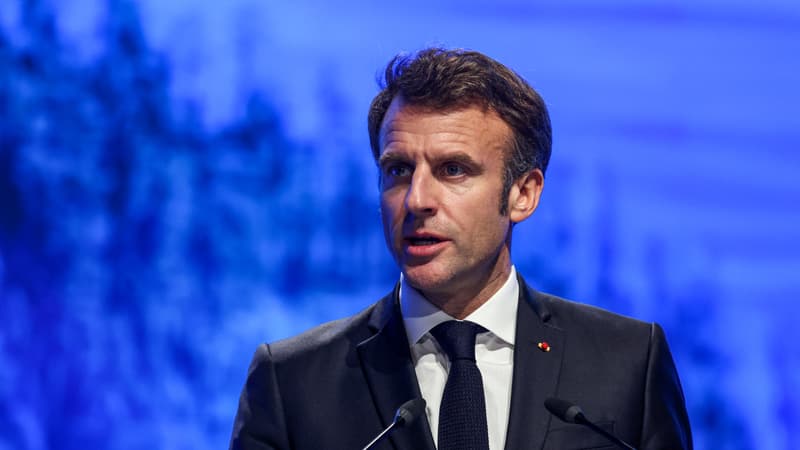“I think it is not in line with the rules of the World Trade Organization and it is not in line with friendship.” After his meeting with representatives of the 50 industrial sites that emit the most greenhouse gases in France, Emmanuel Macron criticized the Inflation Reduction Law. Voted this summer in the United States, the text aims to reduce greenhouse gas emissions and plans to allocate part of its allocation of 370,000 million dollars in the form of subsidies that will encourage the establishment of actors in the sustainable industry.
An apparatus that accentuates the shock of competitiveness on the other side of the Atlantic where the United States already produces gas at low cost that it resells at a high price to Europe. For the Head of State, this device excludes the EU from the market and calls for a “European awakening”.
Climate, industrialization and sovereignty
This strategy mentioned by the President of the Republic is based on three objectives that should guide the construction of a “reference framework” to reduce greenhouse gas (GHG) emissions. First, there is the climate issue symbolized by the two targets of reducing GHG emissions by 55% by 2030 and carbon neutrality by 2050.
The second part refers to industrialization, which should make it possible to create wealth and jobs on which climate-friendly investments depend and maintain a “generous” social model. “We have put an end to more than 12 years of deindustrialization with reforms, attractive elections”, recalled the Head of State, citing the reduction in corporate taxes, the flat tax, the apprenticeship reform or the provision of 35,000 million France Relance for the secondary sector Emmanuel Macron thus wants to maintain this course in order to approach full employment and, in particular, reach the threshold of 5% unemployment in France.
Finally, the President of the Republic emphasized the need for sovereignty while Europe faces supply difficulties, semiconductors coming out of Covid and today energy. According to him, the solution lies, among other things, in the maximum diversification of these dependencies, such as in rare materials, and in the relocation of as many value chains as possible, such as batteries, hydrogen or semiconductors.
Competitiveness shock is not the only emergency
As an example of a response to these three goals, Emmanuel Macron mentioned the automotive strategy that consists of continuing the energy transition while producing more hybrid and electric vehicles on French soil. “We were wrong to neglect one of the three objectives,” he stresses.
However, two emergencies that must be addressed in the short term condition the decarbonisation of French industry. On the one hand, the competitiveness shock mentioned above and on the other, the energy problem. “We have an issue of energy security”, he summed up, recalling the EU’s objectives of reducing gas costs and disconnecting electricity prices from them. Regarding this structural reform, the European Commission should present a proposal at the beginning of 2023 for the entry into force of the system in the second half of the year.
At the national level, the challenge is to secure capacities while at the same time giving visibility to the various actors supported, from VSE to ETI and large groups, including SMEs and local authorities.
Source: BFM TV


